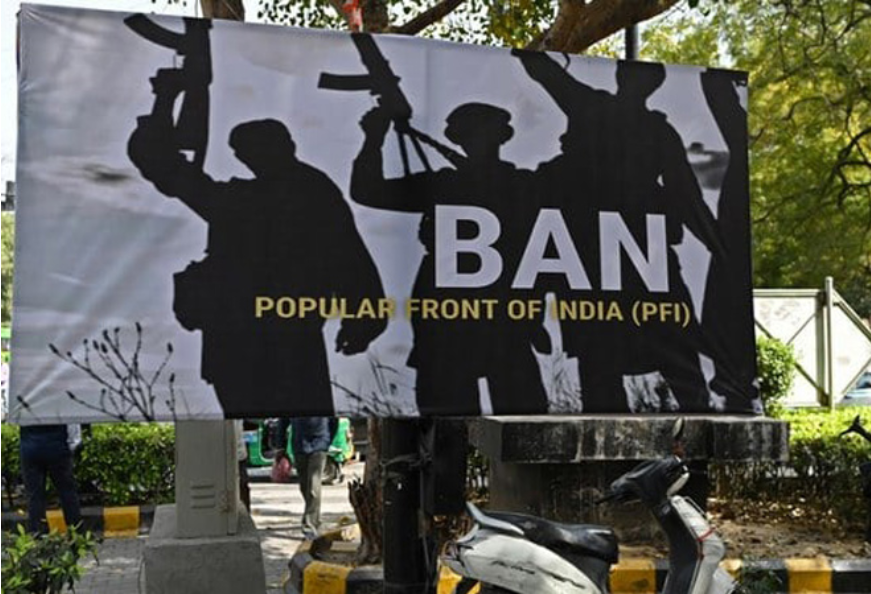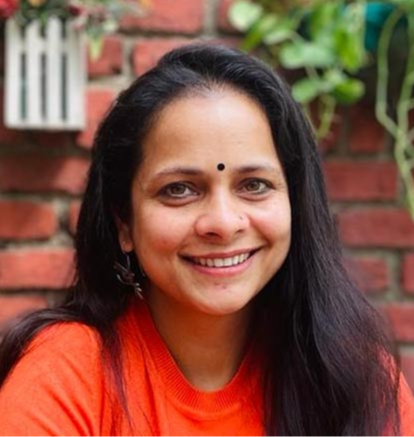
On 28 September 2022, the Ministry of Home Affairs issued a notification in the Gazette of India banning the Popular Front of India (PFI) and its affiliates, including the Rehab India Foundation, Campus Front of India, National Women's Front, and Junior Front. These organisations have been banned under Section 3 of the Unlawful Activities (Prevention) Act (UAPA), declaring them as 'unlawful'. The ban came after a nationwide and multi-agency crackdown on the PFI. More than 300 leaders of the organisation were arrested across 11 states and union territories. In addition, the accounts of the organisation were seized, and the members were liable to be punished under Section 10 of the UAPA and sentenced to life imprisonment.
Matryoshka doll effect
The PFI is considered a reincarnation of the National Development Front (NDF) that was set up in 1994 in Kerala. In 2006, the NDF dissolved itself and re-emerged as the PFI, presumably focusing on socio-economic issues ailing minorities—particularly the Kerala-based Muslim community. Curiously, however, the PFI is not just a reincarnation of the NDF, instead, it has a structure like the Russian ‘Matryoshka’ doll (a traditional representation of the mother carrying a child within her), which has multiple dolls of decreasing sizes placed inside each other. Just like each doll has a different visual representation but is part of the larger doll, PFI has a parent organisation Social Democratic Party of India (SDPI).
The IUML established the Islamic Sevak Sangh (ISS) in Kerala to oppose the Rashtriya Swayam Sevak Sangh, while claiming to work for the welfare of minorities.
Only after years-long surveillance by security agencies—in which they closely tracked the organisation's growth, its expanding activities, and their security consequences—was the ban on the PFI placed.
PFI's emergence is due to several developments in Kerala. Its roots can be traced to developments after India's independence in 1947. Post-Partition, the All-India Muslim League got divided into Indian Union Muslim League (IUML) and Pakistan Muslim League. The IUML established the Islamic Sevak Sangh (ISS) in Kerala to oppose the Rashtriya Swayam Sevak Sangh, while claiming to work for the welfare of minorities. Decades later, during the 1992 Babri Masjid demolition, security agencies found connections between ISS and the Pakistan Army's Inter-Services Intelligence for planning anti-state activities, eventually leading to the banning of ISS in 1992. However, the ban's impact was short-lived as it paved the way for the establishment of the National Development Front (NDF) in 1994, which worked with a plan of Da'wa—propagating Islam to other communities as well through organisations like Sathyasarini or Markazul Hidaya Educational and Charitable Trust in Kerala. In 2006, the PFI emerged to become the political front of the NDF. It held several meetings to plan and execute welfare programmes with an agenda of exploiting the alienated and marginalised sections of society. In 2013, PFI interacted closely with members of the Student Islamic Movement of India (SIMI) and hosted them in a terror training camp in Kannur District, in which 21 PFI members were convicted in 2016.
Through its propaganda, the organisation has been strategically attacking the very social fabric of India, exploiting and manipulating the sentiments of vulnerable communities like Dalits or orphans to undermine the concept of democracy and the Indian constitution. For instance, the Assam government has flagged the PFI's scholarship programme, which was utilised as an opportunity to create mass support for PFI's causes in the state. In other parts of India, with programmes like 'School Chalo’ and ‘Sarva Siksha Gram’, and ‘Adopt Student’ campaigns, PFI often mobilised the economically weaker masses and instigated them to challenge the government. In July 2022, PFI released a document titled “India 2042- Towards Rule of Islam in India” as a counter to the Government of India document “Vision India @ 2047” .
The Assam government has flagged the PFI's scholarship programme, which was utilised as an opportunity to create mass support for PFI's causes in the state.
There have been official statements alleging that PFI has connections with outlawed terror organisations such as Jamat-ul-Mujahideen (JMB) and Islamic State (IS), particularly in Kerala, where some PFI activists had joined the Islamic State and participated in terrorist acts in Syria, Iraq, and Afghanistan.
The aftermath of the ban
Despite the PFI and its associated agencies being banned, its political wing, the Social Democratic Party of India (SDPI), continues to remain active. The SDPI has alleged that the ban challenges Indian democracy and constitutional rights. In addition, it has been regularly posting messages on its Twitter handle and discussing subjects like the hijab ban, contesting Hindi as a national language, and deriding the Government for India’s declined ranking on the Global Hunger Index 2022, which indicates their continued struggle to gain support from the masses. These actions shouldn’t be underestimated since they open the prospect that the PFI might re-emerge under a new name and identity while pursuing its previous goals. Since the ban, the PFI has reportedly changed from the earlier ‘Media Popular Front’ or the ‘Popular Front of India’ names to just ‘Media Update’. Likewise, one of the Twitter accounts, earlier known as ‘Campus Front Ernad’, is now re-named Intifada.
Kerala’s Muslim organisations have supported the ban on the PFI. At the same time, the Jamaat-e-Islami Hind has opposed the prohibition, claiming that it did not fit well in a democracy and has urged PFI members to contest the ban both legally and ideologically.
It is plausible that since the coordinated raid on the organisation, several volunteers and members have gone underground, which will pose a challenge to counter their ideology and campaign against the Indian government. Several members of SIMI had joined PFI when SIMI was proscribed in 2001. Therefore, it is likely that the ban will only dismantle the PFI but not its ideology.
Way Forward
Given the PFI’s involvement in violence, crime, illegal activity, and terrorist incidents, security agencies must ensure that the PFI doesn’t reappear on the scene after a few years. A long-term solution must be sought to stop the organisation's reincarnation. Security agencies can pursue two possible options.
The Jamaat-e-Islami Hind has opposed the prohibition, claiming that it did not fit well in a democracy and has urged PFI members to contest the ban both legally and ideologically.
Firstly, they should remove PFI's authorisation under the 2002 Prevention of Terrorism Act. Given the organisation’s extensive engagement in incidents like the Jafarabad riots and the anti-CAA rallies in New Delhi in 2020, agencies can gather evidence to prove PFI’s culpability in harming the unity, security, and sovereignty of India.
Secondly, the agencies can refer to the Expert Group Report of 2012 of the Ministry of Corporate Affairs, which proposed to amend the pre-Independence era legislation, the Societies Registration Act 1860, with new clauses that will be more transparent and accountable in modern times and adapts to the new economic environment. Each organisation registered under the Act has been aspiring to gain a pan-India presence, which can be monitored through the Multi-State Societies Registration Bill, 2012 and the Model Law proposed by the Ministry of Corporate Affairs.
Therefore, banning PFI under the UAPA is only the first step and must be followed by an amendment of the Societies Registration Act 1860, which will make all the organisations accountable and keep them under scrutiny.
Even if the PFI contests the ban, the Indian security agencies must continue their crackdown and pressure on the organisation to ensure that it does not metamorphose into something entirely different.
Soumya Awasthi is a freelance consultant.
The views expressed above belong to the author(s). ORF research and analyses now available on Telegram! Click here to access our curated content — blogs, longforms and interviews.




 PREV
PREV


